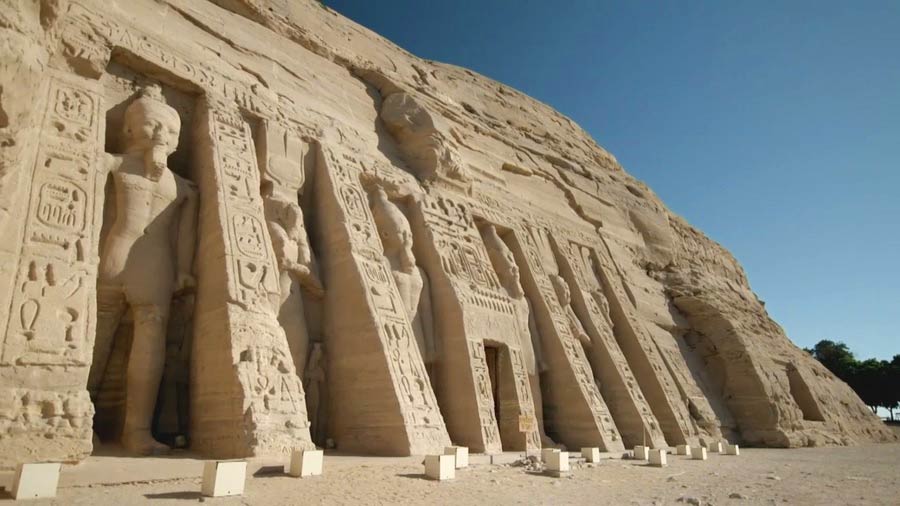First Civilizations episode 2 – Religion: discover the secret to the stability and cohesion of Ancient Egypt—religion. When people share a core set of beliefs, they are more likely to identify as one. That was true for the first civilizations and it’s just as true today.
A look at the first human civilizations, which emerged in the Near East, Egypt, the Indus Valley, China, the Andes, and Mesoamerica. All subsequent civilizations have been derived from these original six foundational civilizations.
First civilizations having lived as mobile foragers for 99 percent of our time on Earth, why did humans set out on the road to civilization? How did they create villages, towns, cities, and states, and establish the blueprint for the modern world?
First Civilizations identifies four cornerstones of civilization – war, religion, cities and trade – and explores each in the context of a different location, from Mexico, Guatemala, Iraq, Turkey, Egypt, India, and Pakistan, to Oman, Morocco, France, Germany, Japan, the United Kingdom, and the United States. Unearth the latest archaeological discoveries, test new theories, and uncover original information as dramatic reconstructions and computer graphics visualize the lost world of the first civilizations.
First Civilizations episode 2 – Religion
Religion
Religion is a social-cultural system of designated behaviors and practices, morals, worldviews, texts, sanctified places, prophecies, ethics, or organizations, that relates humanity to supernatural, transcendental, or spiritual elements. However, there is no scholarly consensus over what precisely constitutes a religion.
Different religions may or may not contain various elements ranging from the divine, sacred things, faith, a supernatural being or supernatural beings or “some sort of ultimacy and transcendence that will provide norms and power for the rest of life”. Religious practices may include rituals, sermons, commemoration or veneration (of deities), sacrifices, festivals, feasts, trances, initiations, funerary services, matrimonial services, meditation, prayer, music, art, dance, public service, or other aspects of human culture.
Religions have sacred histories and narratives, which may be preserved in sacred scriptures, and symbols and holy places, that aim mostly to give a meaning to life. Religions may contain symbolic stories, which are sometimes said by followers to be true, that have the side purpose of explaining the origin of life, the universe, and other things. Traditionally, faith, in addition to reason, has been considered a source of religious beliefs.




